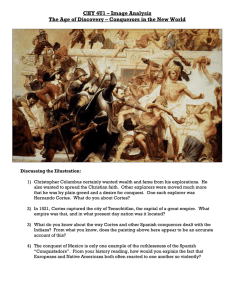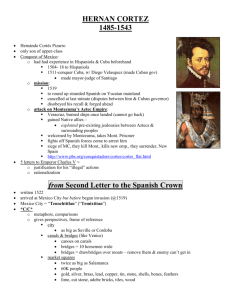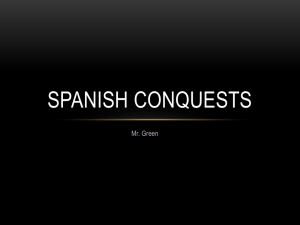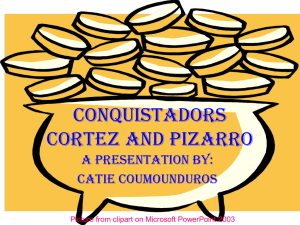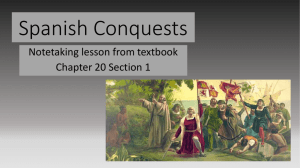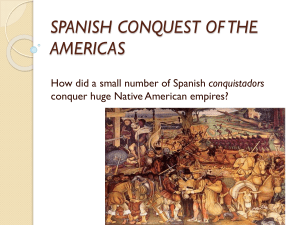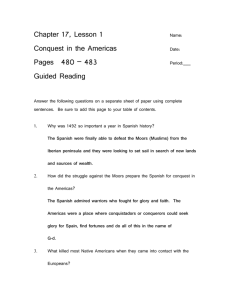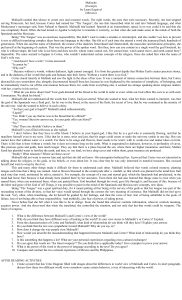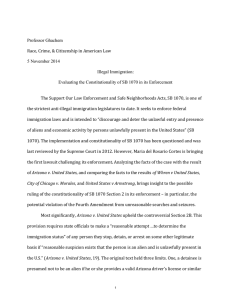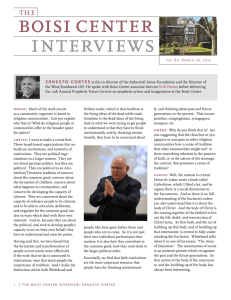File
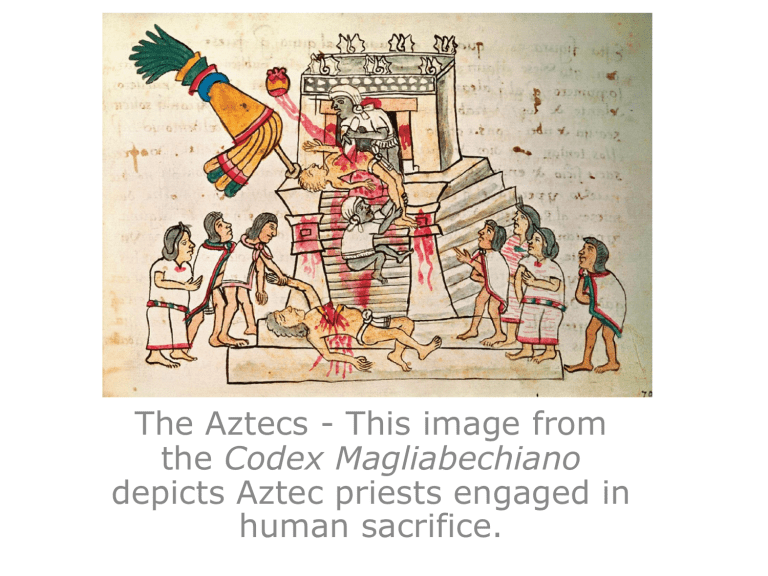
The Aztecs - This image from the Codex Magliabechiano depicts Aztec priests engaged in human sacrifice.
Mesoamerica
• Capital City of Tenochitlan in lake off Chapultepec with chinampa agriculture (floating garden)
• Prior to contact: Triple alliance of Tenochitlan,
Texcoco, and Tlacopan against Aztcapotzalcoans
• Warriors became rulers of society, captive became slaves
• Slaves taken war were debtors, Mayeques
(peasants) occasionally sacrificed to Huitzilopochtli
(god of war)
• 1519- Hernan Cortes arrives and displaced natives ally with Cortes in part because of their disagreements with Tenochitlan and the Mexica
Theories about Cortes
• How could Hernan Cortes and his six hundred followers “conquer” millions of Mexica?
• Was it coercive? Violent?
What gave the Spanish an advantage?
• Why do we assume that categories such as these must be mutually exclusive?
Noche Triste
• June 30, 1520 when Cortes went to coast to meet other ships and ¾ of
Spanish left behind in Tenochitlan are killed
He came dancing across the water With his galleons and guns Looking for the new world In that palace in the sun.
On the shore lay Montezuma With his coca leaves and pearls In his halls he often wondered With the secrets of the worlds. And his subjects Gathered 'round him Like the leaves around a tree In their clothes of many colors For the angry gods to see. And the women all were beautiful
And the men stood Straight and strong They offered life in sacrifice So that others could go on. Hate was just a legend And war was never known The people worked together And they lifted many stones. They carried them
To the flatlands And they died along the way But they built up With their bare hands What we still can't do today. And I know she's living there And she loves me to this day I still can't remember when Or how I lost my way.
He came dancing across the water Cortez, Cortez What a killer. Neil Young, “Cortez the Killer” (1975)
Bartolome de las Casas
• “What we have committed in the
Indies stands out among the most unpardonable offense ever committed against
God and mankind and this trade as one of the most unjust, evil and cruel among them”
The Black
Legend
Colonial Rivalries
• The discovery of America, and the riches, colonies and trade that it promised, helped to formulate the growing nationalism and imperialism of sixteenth century governments, especially when connected with ideas of providential destiny.
Girolamo Benzoni's Historia nuovo (1565)
• "The natives, finding themselves intolerably oppressed and overworked, with no chance of regaining their liberty, with sighs and tears longed for death. Many went into the woods and having killed their children, hanged themselves, saying it was far better to die than to live so miserably serving such ferocious tyrants and villainous thieves... finally, out of two million inhabitants, through suicides and other deaths occasioned by the excessive labour and cruelties imposed by the
Spanish, there are not a hundred and fifty now to be found."
